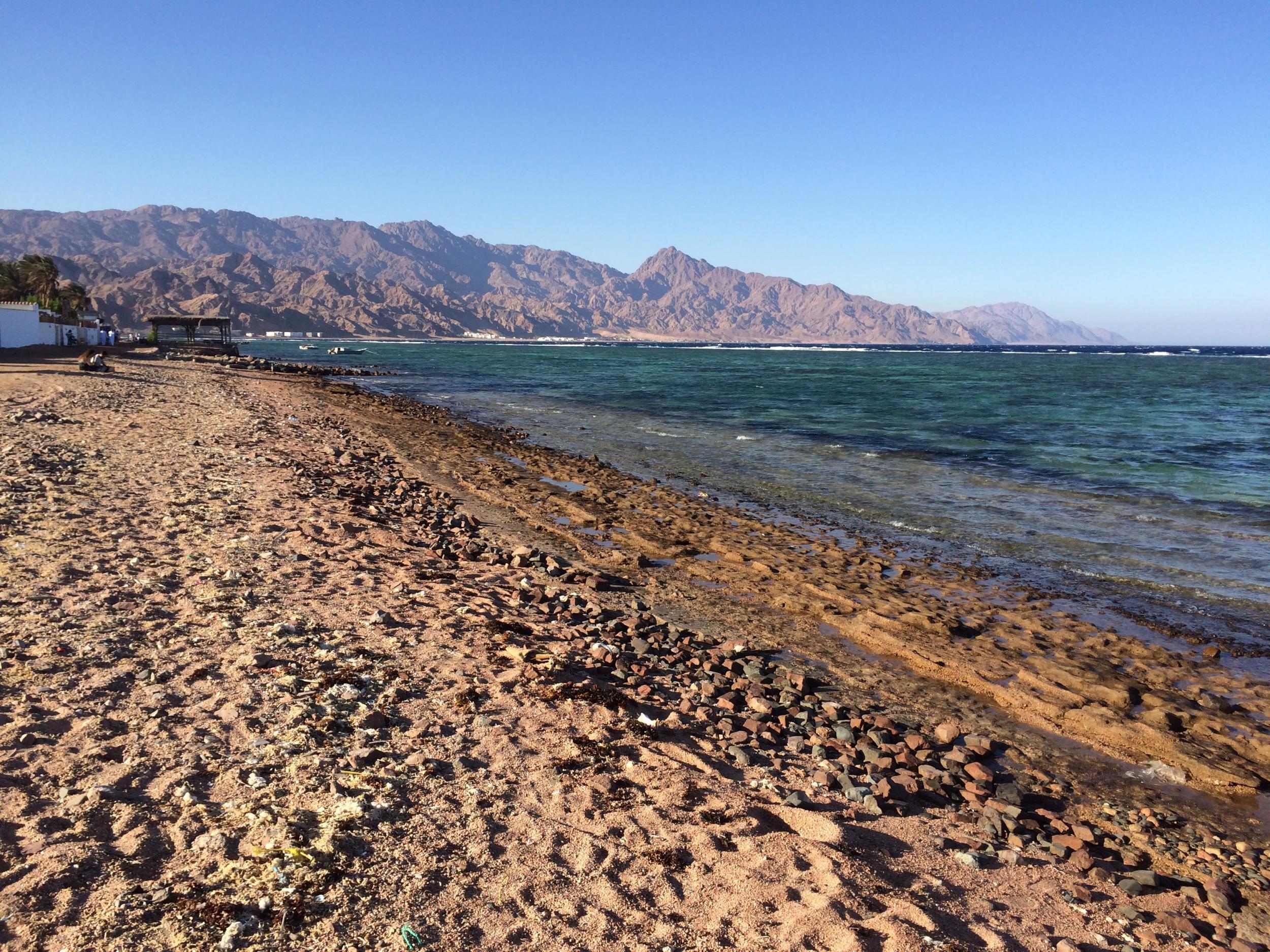Dahab: The Red Sea diving resort that's making a comeback
Dahab used to be one of the most popular Red Sea diving resorts. After a revolution, a military coup and an airliner bombing, it’s making a comeback, says Nick Redmayne

At Cairo’s Riyadh al Mun station the warm night air is fragrant with diesel particulates. An unruly pack of snorting buses jockey for position. Brakes gasp, lights flash, drivers shout abuse, horns blare. “All these buses are shit,” announces a distracted Egyptian minding a bemused Japanese woman. “This company had so many crashes its license was revoked. Now at least they have two drivers. Anyway, why should I worry?” he adds incredulously. “This girl is going diving in Dahab, and she can’t even swim.”
Since a Russian passenger aircraft was bombed in 2015, the UK Government has banned flights to Sinai. The Foreign and Commonwealth Office currently advises against overland travel anywhere in the Sinai Peninsula.
My ticket is for Dahab too – a 350-mile overnight journey. Climbing aboard, the risk of sleep appears slim thanks to the driver’s questionable video playlist on repeat. Yasmine, a young Egyptian whose hair is braided with coloured thread, sits next to me. “I’m going to see friends, to party, to be free,” she announces. She hunkers down in her seat, checks social media, wraps a scarf around her head, cuddles a well-loved Winnie the Pooh, and dozes off. After 10 hours, a surfeit of tea stops, two army baggage inspections and more passport checks than I can remember, we arrive in Dahab.
The remote Bedouin fishing village became more widely known during the Israeli occupation of Sinai following the Six Day War of 1967. Israelis fell for the water here, rich in corals and marine fauna, and sites such as the 110m Blue Hole – “the world’s most dangerous dive” – drew divers from across the globe. In 1982, Sinai was returned to Egypt. Dahab’s laid-back, relaxed vibe endured.
Walking south along the beach, the wind blows strong and steady. A kite surfer skitters along the water’s surface, chasing trails through white-topped waves. Across the Gulf of Aqaba, 15 miles wide, Saudi Arabia’s Hijaz mountains are picked out in ochre against a brilliant blue sky.
Further down the sand, the Friday market is setting up. A mix of races, languages and religions come together in a colourful crowd. New Agers, entrepreneurs and eccentrics patronise the stalls and preside over them. Connie, a fifty-something German woman wearing a hijab, is doing swift trade in fruit cakes. “Dahab’s getting by,” she says. “There’s a few Europeans, not many. Egyptians come for a while, but their prices are low, and they leave a lot of rubbish.” Her apple and blueberry pie is excellent.
At a stall selling honey cakes I speak to Mina. “If flights restart, it will take a while, but it will be booming. There’s a new generation that hasn’t experienced these areas,” he says. “In 10 years Dahab will be like Sharm El Sheikh.” Mina’s fellow stallholder looks askance.
“No it won’t,” she says emphatically.
“Well, anyway the decision on flights is political,” says Mina.
Beyond the market, the beachfront is lined with cafes, restaurants, guesthouses and a few modest hotels. Some establishments ready for an unlikely evening rush. Some are closed. Some have been empty for years.
The wind drops as the shore path turns the corner. At the “Lighthouse” – the heart of Dahab’s diving industry – pros and first-timers pull on wetsuits and check their tanks and regulators. “The Israelis started coming back a year ago,” says one dive shop owner, who didn’t want to give his name. “This place is never going to be Sharm El Sheikh, though they’re trying. But the beach here is Bedouin ownership – there are perhaps 150 different titles. They’ll never agree.”
Later, away from the beach, on unpaved streets populated by goats and chickens, I am invited to tea by a Bedouin family. “I learnt English selling bracelets on the beach,” says Aidah, a forthright thirty-something. Her family made money from letting apartments, she says. We sit on carpets around a small charcoal brazier. Tea is poured into glasses and passed around. Aidah’s father stops examining a little bundle of Omani frankincense, takes a glass of tea and lights a cigarette. “Dahab is like many places, beautiful from the outside,” she continues. “But when you live here you see how it really is, you see many difficulties.” She pauses. “There are two cultures, Bedouin and Egyptian, and they are completely different.”
Lonely Planet still calls Dahab “the Middle East’s prime beach resort for independent travellers”. Following a revolution, a military coup and an airliner bombing, the superlative seems a poor fit. It’s true that Dahab remains a Bedouin town first and a resort second. Circumstances have certainly effected a pause in tourism development. How long this hiatus continues and precisely what the future holds are subjects of conjecture. However, change is coming. It’s “when”, not “if”.
Travel essentials
Getting there
Egypt Air flies from Heathrow to Cairo from £348. From there, you can take an internal flight to Sharm El Sheikh or take the bus (around £6).
Staying there
The three-star Coral Coast Hotel has doubles from £42, B&B.
More information
The writer flew to Cairo as a guest of the Egyptian State Tourist Board
Subscribe to Independent Premium to bookmark this article
Want to bookmark your favourite articles and stories to read or reference later? Start your Independent Premium subscription today.

Join our commenting forum
Join thought-provoking conversations, follow other Independent readers and see their replies